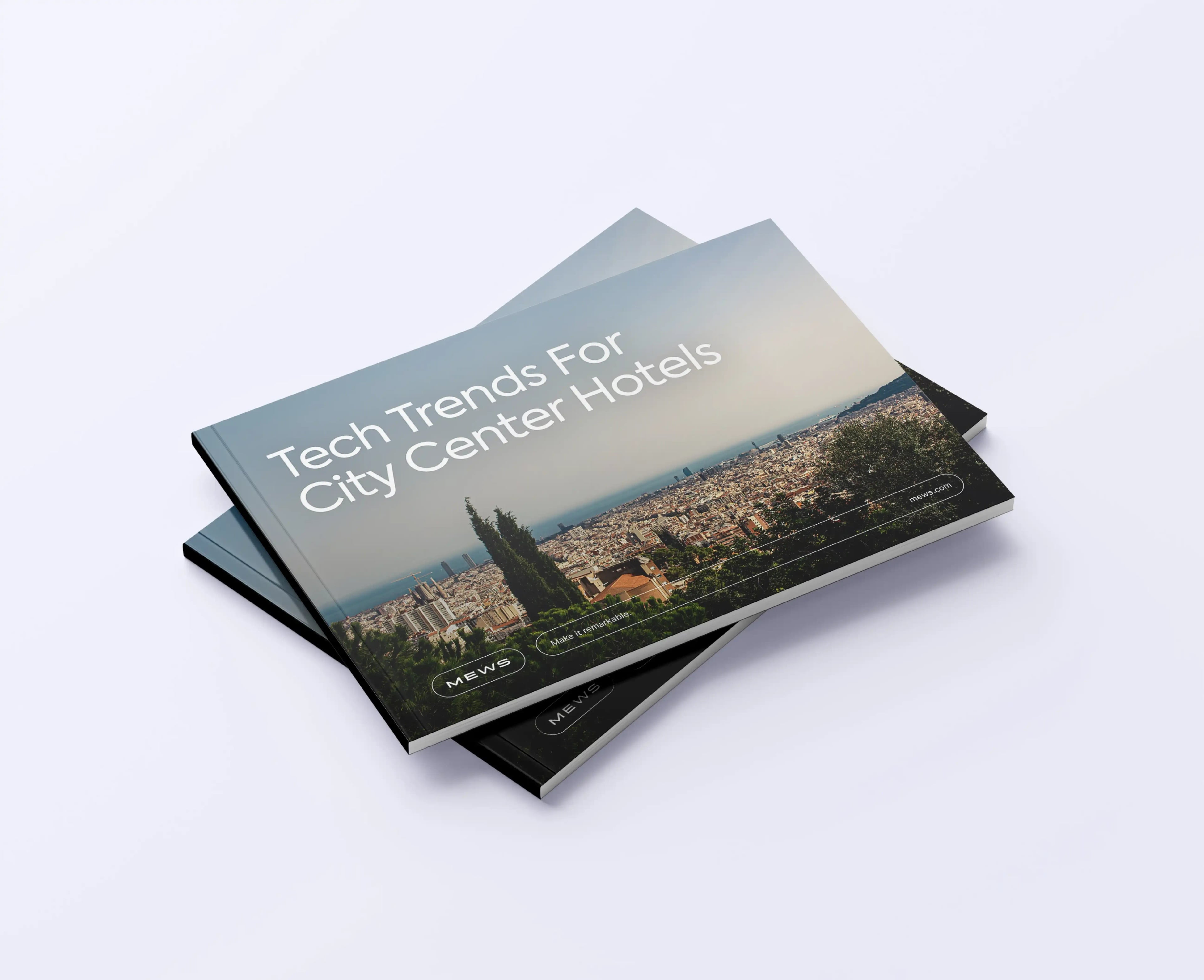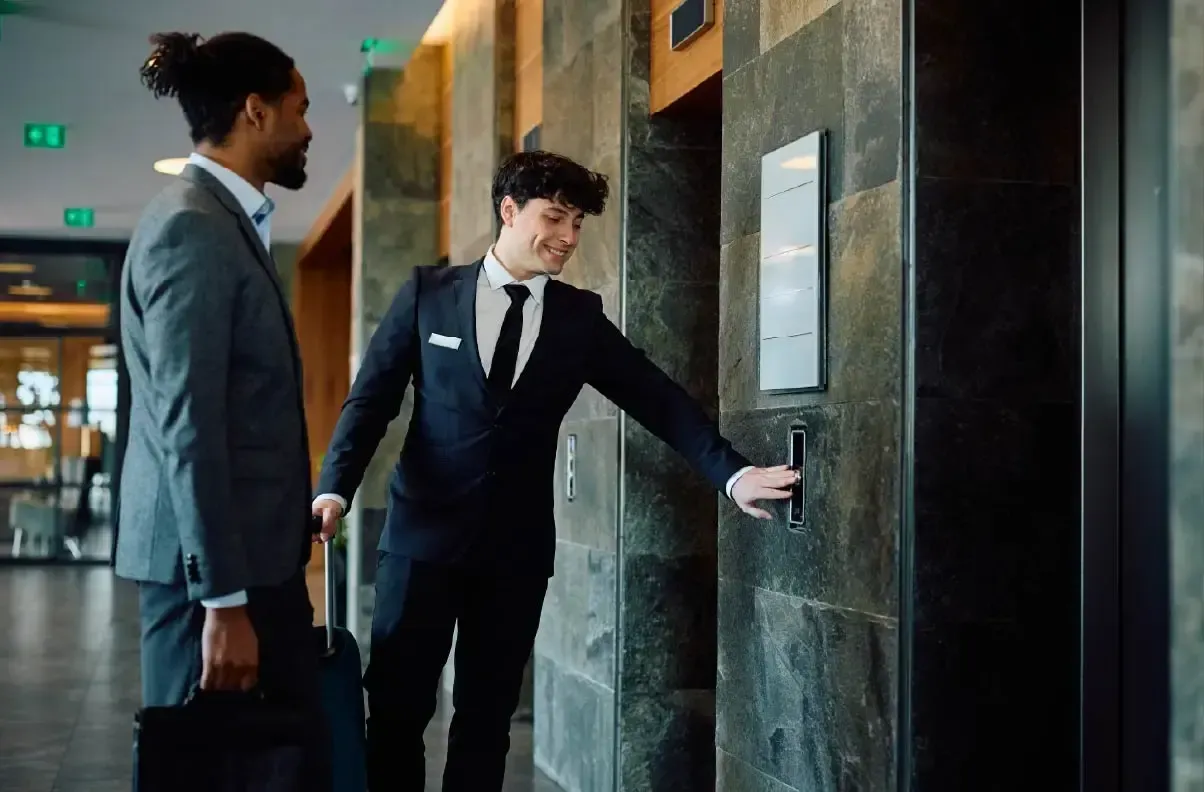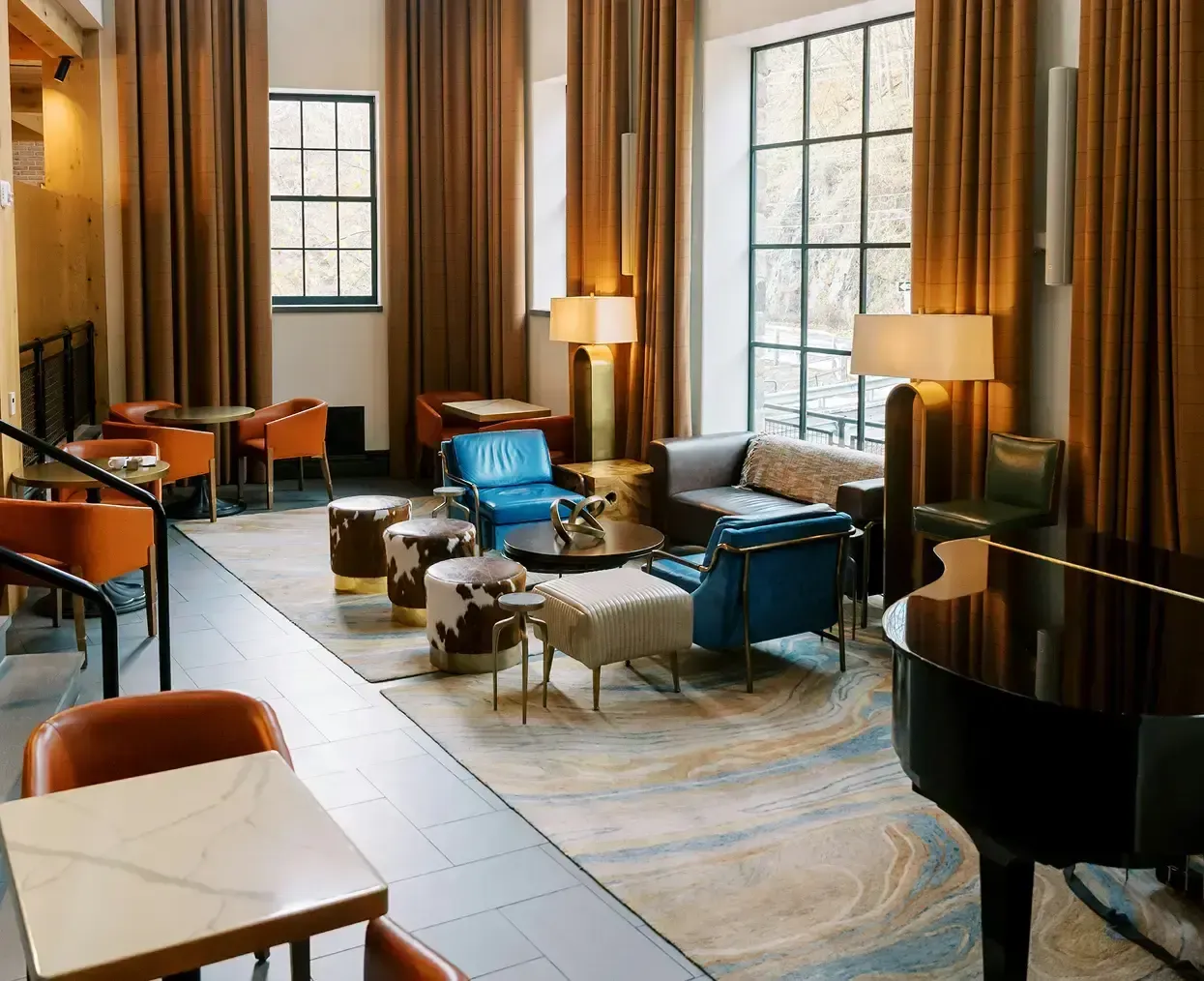The hospitality landscape in 2025 continues to evolve at pace, shaped by rapid technological change, rising guest expectations, and increasing pressure to increase sustainability initiatives. From artificial intelligence adoption and automation to workforce gaps and cybersecurity threats, hotel leaders are navigating a growing list of operational and strategic challenges.
This year, the focus is on optimizing the guest experience, driving profitability, and staying relevant in a market where innovation and adaptability are no longer optional.
Here are seven hospitality industry challenges and trends shaping the hospitality sector right now.
7 trends and challenges facing the hotel industry in 2025
Let's take a look at some of the most important hospitality industry challenges 2025.
1. Underqualified staff and labor shortages
Staffing continues to be one of the most pressing hospitality industry challenges in 2025. Five years on from the pandemic, many hotels are still grappling with a talent shortage, rising hotel labor costs, and difficulty finding skilled team members.
Remote work has lured talent into other industries, making hospitality roles harder to fill. The solution? Upskilling and empowering the people you already have. By identifying knowledge gaps and investing in regular training, hoteliers can equip staff with the confidence and capability to deliver better service – and solve more problems independently.
Skilled, confident staff are not only more efficient but also more engaged, directly impacting guest satisfaction and your bottom line.
Want to learn more about training up your staff? Download our guide to empowering your hotel staff.

2. Automation vs. the human touch
As more hotels lean into automation to streamline operations, the challenge is maintaining a personal, human experience. While digital tools can make processes faster and more cost-effective, hospitality is still built on emotional connection.
That means finding the right balance – where automation handles repetitive tasks, freeing up staff to focus on what really matters: warm welcomes, empathetic problem-solving, and genuine interactions that drive loyalty. The most successful hoteliers will be those that use technology to enhance, not replace, the human element.
3. Cybersecurity and data protection
Hotels manage vast amounts of guest data, from personal details and payment information to biometric and behavioral insights. That makes cybersecurity a top hospitality challenge in 2025.
With stricter regulations like GDPR and the CCPA in place, hotels must not only protect guest data but also be transparent about how it's used. At the same time, cybercriminals are using AI-powered tools to launch increasingly sophisticated attacks, making prevention more complex.
Protecting guest data isn't just a compliance issue – it's a trust issue. Brands that take it seriously will stand out.
4. Sustainability and eco-friendly operations
Guest expectations around sustainability are higher than ever, and greenwashing is being called out in real time on social media, posing an even more complex hospitality industry challenge. For hoteliers, that means making meaningful changes – not just marketing them.
Challenges remain, including the cost of eco-friendly upgrades, operational trade-offs, and maintaining comfort while reducing impact. From energy-efficient systems to cutting single-use plastics and sourcing local ingredients for food and beverage, every decision needs to balance sustainability with guest satisfaction and guest preferences.
Transparency and consistency are key. Guests want to know your values are authentic and see the proof in practice.

5. AI integration
AI is rapidly reshaping how hotels operate, from advancements like chatbot support and predictive maintenance to forecasting and dynamic pricing and personalized recommendations. Done right, it can drive efficiency, optimize the guest journey, and boost profitability. But there's a reason this hospitality trend is also one of the hospitality industry challenges to look out for in 2025.
The investment can be significant for hospitality businesses, and data privacy must remain a priority. Plus, some guests may find AI-driven tools impersonal if not implemented thoughtfully.
The goal isn't to automate everything – it's to use AI to enhance hotel experiences, personalize service at scale, and make smarter operational decisions without losing the human touch.
6. Rising guest expectations
Today's travelers expect more – and they want it faster. The bar for personalized experiences at hotels is higher, and thanks to social media, guests often arrive with a clear picture of what they believe they should experience.
Smart features like mobile check-in, digital room keys, voice-controlled lighting, and wellness-focused services are no longer nice-to-haves; they're expected. And when those expectations aren't met, satisfaction drops.
Delivering the right level of personalization means using data, investing in the right tech, and ensuring staff are trained to go above and beyond. Meeting expectations is no longer enough – hotels need to find new ways to surprise and delight.
7. Online reputation
Reputation has always mattered in hospitality, but today it's make or break. Guests share feedback instantly across platforms, and even one negative review can sway booking decisions and affect occupancy, making it a key hospitality industry challenge.
That's why managing your online presence is essential. Monitoring reviews, responding promptly, and using tools like Mews' reputation management integrations can help you stay on top of guest satisfaction and take action when needed.
Positive reviews should be leveraged in marketing, while constructive criticism should be used to improve. Ultimately, a strong reputation doesn't happen by accident – it's the result of consistent, intentional guest experiences.
How can hotels overcome these hospitality industry challenges in 2025?
Hospitality businesses will continue to face pressure in 2025 – but there's also opportunity with these hospitality industry challenges.
Success comes from having the right systems, people, and processes in place. A smart property management system like Mews can streamline and automate operations, unlock demand insights, and support pricing strategies across properties. Paired with the right training and technology, it can help you adapt quickly and deliver a more seamless guest experience, improving guest satisfaction and retention.
Focus on upskilling your team, streamlining operations with automation, and creating personalized guest journeys backed by data. Combine that with a clear sustainability strategy and a strong reputation management plan, and your hotel will be better positioned to navigate whatever comes next.
Want to learn how the world's leading hotels are using smart hotel tech to succeed?
Download our guide "Tech Trends for City Center Hotels"

Written by

Eva Lacalle
Eva a plus d’une décennie d’expérience internationale dans le marketing, le marketing numérique, la communication et l’événementiel. Lorsqu’elle ne travaille pas, elle aime surfer, danser ou explorer le monde.









